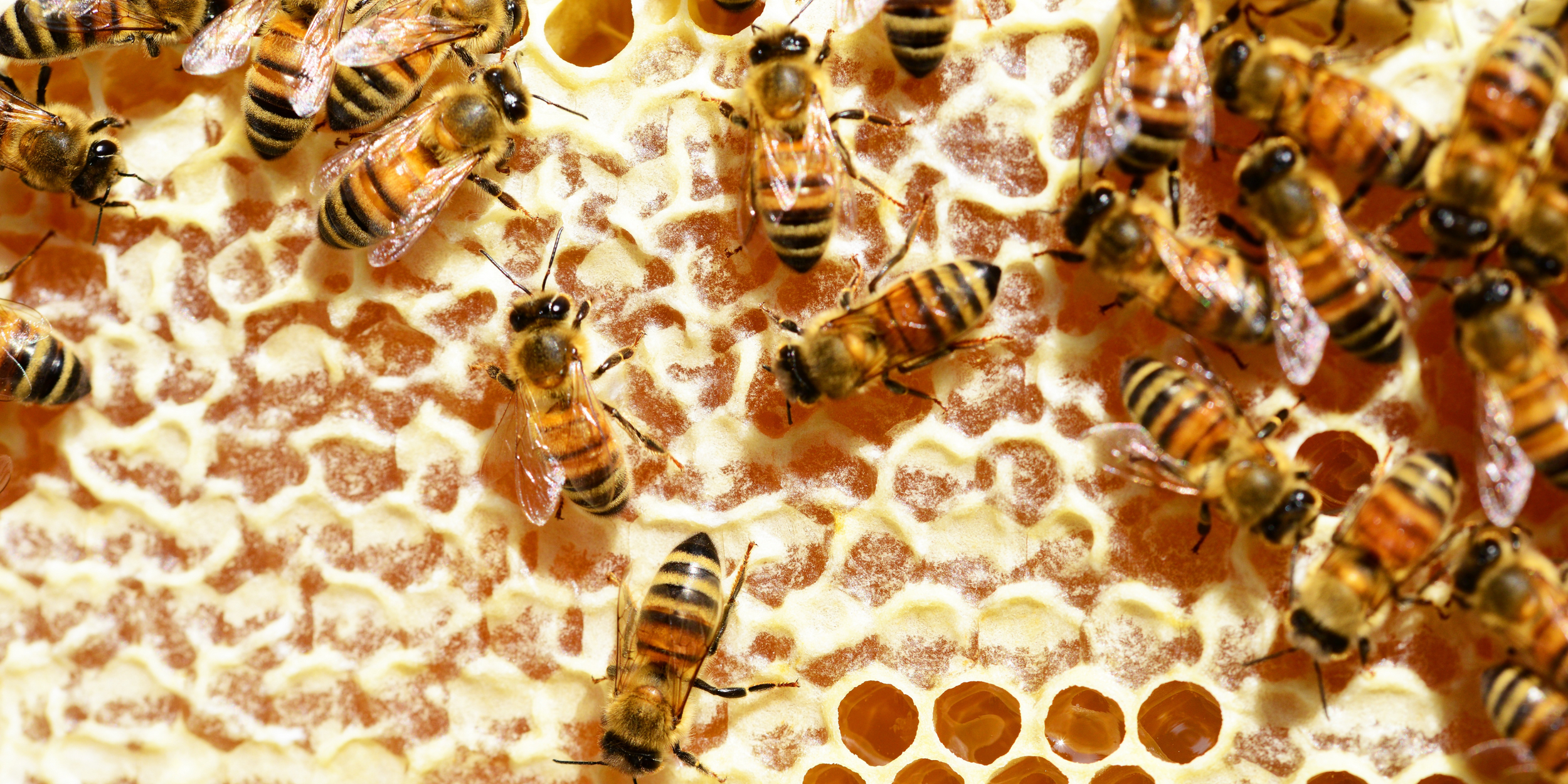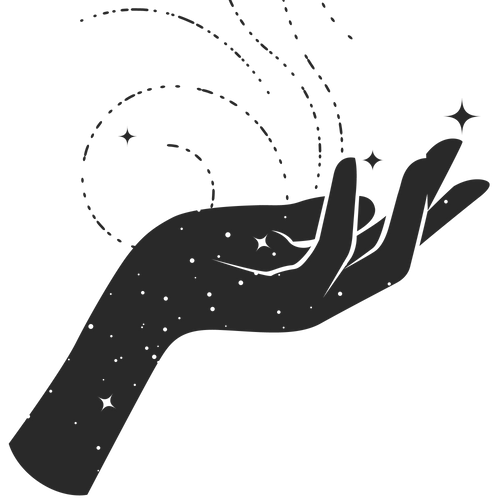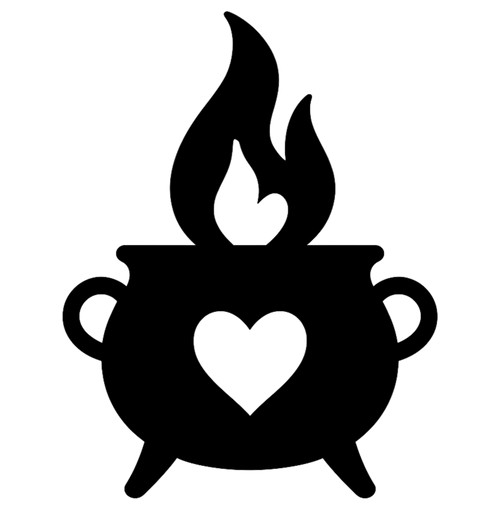A year ago I moved to the Hudson Valley, to a 1800’s barn house in a bucolic hamlet on the Hudson River. Situated within a larger 13 acre estate, the grounds are something out of Eden. Buildings wrapped in wisteria vines, surrounded by violets and hydrangeas. The largest magnolia tree in the state of New York. A hill leading down to the pool that, for a glorious two weeks, springs a symphony hundreds-strong of pink and white peonies. At the edge of my lawn sits a confluence of six weeping cherry trees that beautify you each time you walk through their pink curtains of petals. Outside my living rooms windows — an apple orchard, dotted with a dozen beehives.
Every morning I walked among them, hearing somewhere that beekeepers have the longest lifespan out of any profession. The reason is unknown, but I’m certain it has something to do with the vibration. For my first couple months living here I thought honeybees didn’t sting and, as a such, treated them like fluffy little air puppies. I laid blankets out in the orchard, let them crawl on my eyelashes and land on my hands. I peered into the opening of their hive to admire the thousands of them, humming on their frames.
“Are those graves?” friends would ask, peering out onto the rows of hives.
I was delighted to tell them that they were in fact brimming with life.
The Queen bee is responsible for the reproduction of her entire colony, the male Drones are kicked out of the hive by fall if they haven’t left voluntarily. Most of the time the hive is comprised of solely females, and they are all sisters.
After coming inside from visiting the hives one evening, I looked down to see a passenger hitched a ride on my boot. I scooped them up and took them outside, but they kept crawling back onto me every time I guided them off. We came back inside and I offered them water and some of their own honey, which revived them, and brought them back outside. Again, they were not interested. I brought them up to my bedroom and for a truly magical few hours that evening, me, Zadie, Sam, and this little honeybee happily coexisted. First on top of Sam’s tank to warm up, and then — after refusing outside again — on my shoulder while I read.
When she stung me, it was in the eye of the snake tattoo on my arm. Sick with guilt, I brought her outside once more and she finally flew off to spend her last moments on earth in the open air. The next morning I went to the hives and apologized to her sisters. A persistent pain in my left wrist was healed by the venom, and hasn’t returned.
There is an old European tradition called telling the bees — you are to inform them about the comings and goings of your household, important events, births and deaths and marriages—as they are thought to be messengers of the divine.
I told them about my unhappy year in Los Angeles. About how much I love where I live now, and my hopes to find a permanent home nearby. About the ghosts in my house and my best friend moving down the street. About becoming a godmother to my friend’s son. I notified them when guests came to visit and when men passed through, always taking more than they gave. I sat next to their humming homes and shared with them my triumphs and troubles and hopes and fears.
Later that Spring, a hungry mama bear came through the property, rooted through our trash cans and destroyed the beehives. In two nights, all but one of the hives in the orchard were maimed beyond repair. The hives became a graveyard. I wept like I’d lost a friend.
For weeks the remaining hive had a different kind of buzz about it — sharp, frantic and devastated. They made it clear visitors were unwelcome, so I stayed away.
About a month ago I went to visit the hive and saw dozens of dead honeybees on the ground, the few still alive among them being devoured by wasps. I don’t kill insects when it can be avoided. I have a bug trapper in my house designed to release them unharmed, a courtesy I’d, until then, extended to Yellowjackets. I stomped on them without remorse and walked away shaken.
The next day there were even more, and the next day even more than that.
I made a habit of visiting the hive a few times a day, chancla in hand, on wasp murdering duty. I saw signs of the owners attempts to save it — taping off the cracks, reducing the hive entrances and placing grates in front of the openings, but their population grew and grew. Until it felt hopeless. Until it became too futile and depressing to try.
The last time I intentionally visited the bees, I peered in through the opening and where there were once thousands nestled together on the frames, there were hundreds dead on the ground. I watched through the grates as a single struggling bee was consumed by a Yellowjacket, unable to do anything but sit there.
While I did, I told the bees about Gaza. I told them about my ancestors, murdered by the Brown Jackets. About every instance I could think of where the world bore witness to horrors its was powerless to stop. When the bee stopped moving I left.
This morning before bringing my dog in for surgery, I went to the hive. It was crawling with wasps. The lone honeybee I saw was being dragged out of the hive in the mouth of a Yellowjacket. I instinctively punched it with my bare hand.
I remind myself there is no cruelty in nature, but I still felt betrayed, disturbed, completely fucking gutted by the brutality existence requires. The fastest hands grab the winnings on the table. The meanest dog walks way from the fight. The spoils go to the cruelest and most merciless among us. We regard them as winners, but we shouldn’t.
I’m reminded of how fragile all of this is, how easily destroyed, how much depends on the agreements we make with each other to protect precious, fragile things. To embrace our better angels and master our impulses toward meanness and brutality. To be more spiritually minded than evolutionarily motivated is the decision presented with consciousness. It’s a decision we must make every day.
My late mother’s rabbi shared with me that what he admired most about her was not that she fought the darkness and won, but that she fought the darkness for longer and harder than he thought an individual capable of, and then even longer and harder than that.
I fail to find solace in any of it. I feel deeply tired. If the darkness always wins, then what’s the point in fighting it?
I’d love to follow that up with some kind of conclusive, feel-good answer — but I don’t have one. I’m just alive, doing the best I can. I know if the universe failed to imagine itself out of perpetual darkness we’d still in the primordial ooze. A light in the dark —however brief —is a miracle, whether we regard it as such or not.
I’m praying, building altars, following the astrological hours, leaving offerings to the saints at crossroads and goddesses at train tracks. Without a clear purpose, I prostrate myself before the divine as an offering. Unable to envision the future, I’m forced back into the present.
Some days are better than others. Some are pitch black. And then, occasionally, you get one so rarefied and exquisite that I swear to god I’d live another decade just to experience one like it again.
It is from those times that faith grows like a muscle, gets stored away in a savings account, to be drawn from in times like these, like a glowy golden hammock keeping us suspended above the void — and it’s easy to see the miracle in that.
By Bakara Wintner
Telling The Bees








Carrie Moss
Hi Bakara, long time no see! Thank you for sharing this. It was very moving to me and many of your words and feelings hit home. Much love to you.💚
Christina Baldwin
Bakara, thank you… from the bucolic to the brutal, and allowing yourself and me, the reader, to just sit with it. I am reminded often of the New Testament book of John that says: The light shines in the darkness and the darkness comprehended it not. Darkness not removed. Darkness not overpowering. Darkness not comprehending the light. I am a writer and recommend to you to a remarkable little book about bees: The Song of Increase by Jacqueline Freeman. Her work the basis for the role of the bees in my book: The Beekeepers Question. And thank you again for your words. Love and honey.